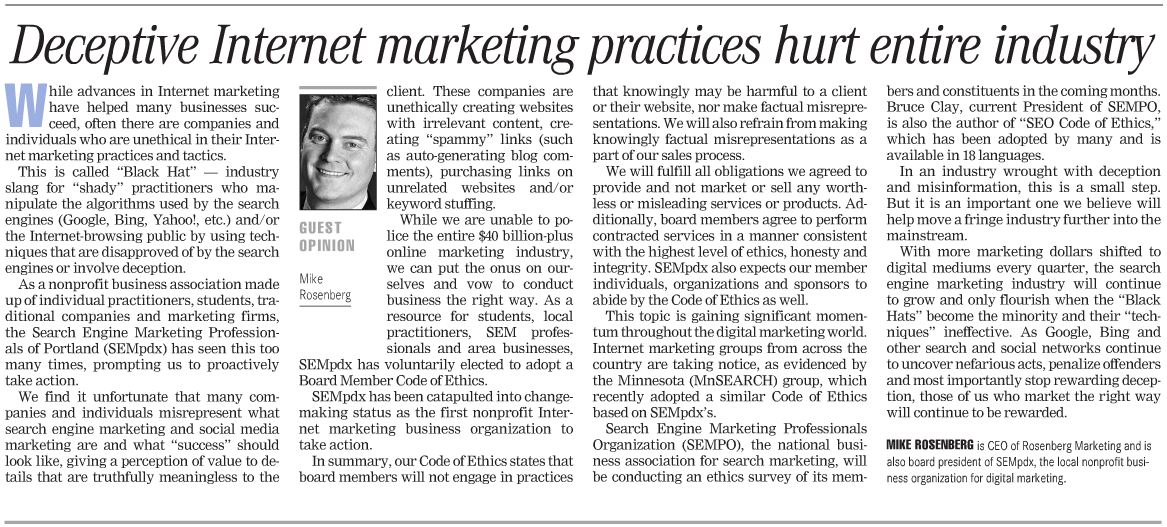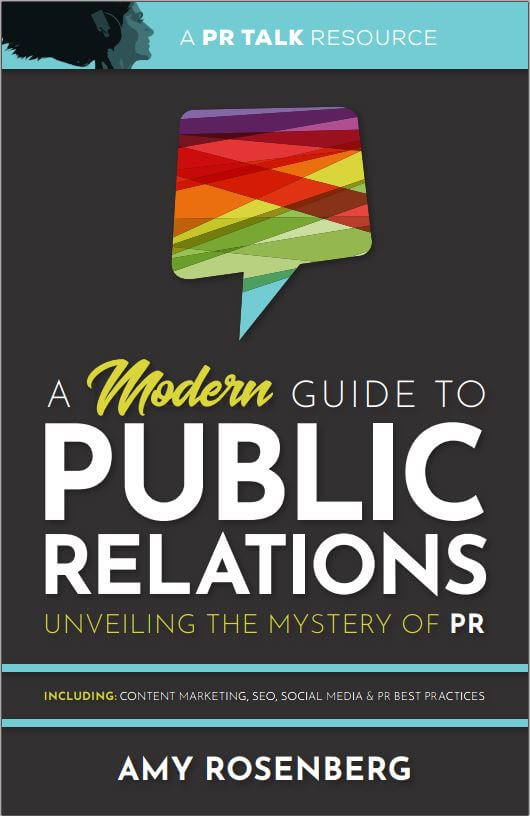– Guest Opinion Published in the Portland Business Journal, January 11, 2013
While advances in Internet marketing have helped many businesses succeed, often there are companies and individuals who are unethical in their Internet marketing practices and tactics.
This is called “Black Hat” — industry slang for “shady” practitioners who manipulate the algorithms used by the search engines (Google, Bing, Yahoo!, etc.) and/or the Internet-browsing public by using techniques that are disapproved of by the search engines or involve deception.
As a nonprofit business association made up of individual practitioners, students, traditional companies and marketing firms, the Search Engine Marketing Professionals of Portland (SEMpdx) has seen this too many times, prompting us to proactively take action.
We find it unfortunate that many companies and individuals misrepresent what search engine marketing and social media marketing are and what “success” should look like, giving a perception of value to details that are truthfully meaningless to the client. These companies are unethically creating websites with irrelevant content, creating “spammy” links (such as auto-generating blog comments), purchasing links on unrelated websites and/or keyword stuffing.
While we are unable to police the entire $40 billion-plus online marketing industry, we can put the onus on ourselves and vow to conduct business the right way. As a resource for students, local practitioners, SEM professionals and area businesses, SEMpdx has voluntarily elected to adopt a Board Member Code of Ethics.
SEMpdx has been catapulted into change-making status as the first nonprofit Internet marketing business organization to take action.
In summary, our Code of Ethics states that board members will not engage in practices that knowingly may be harmful to a client or their website, nor make factual misrepresentations. We will also refrain from making knowingly factual misrepresentations as a part of our sales process.
We will fulfill all obligations we agreed to provide and not market or sell any worthless or misleading services or products. Additionally, board members agree to perform contracted services in a manner consistent with the highest level of ethics, honesty and integrity. SEMpdx also expects our member individuals, organizations and sponsors to abide by the Code of Ethics as well.
This topic is gaining significant momentum throughout the digital marketing world. Internet marketing groups from across the country are taking notice, as evidenced by the Minnesota (MnSEARCH) group, which recently adopted a similar Code of Ethics based on SEMpdx’s.
Search Engine Marketing Professionals Organization (SEMPO), the national business association for search marketing, will be conducting an ethics survey of its members and constituents in the coming months. Bruce Clay, current President of SEMPO, is also the author of “SEO Code of Ethics,” which has been adopted by many and is available in 18 languages.
In an industry wrought with deception and misinformation, this is a small step. But it is an important one we believe will help move a fringe industry further into the mainstream.
With more marketing dollars shifted to digital mediums every quarter, the search engine marketing industry will continue to grow and only flourish when the “Black Hats” become the minority and their “techniques” ineffective. As Google, Bing and other search and social networks continue to uncover nefarious acts, penalize offenders and most importantly stop rewarding deception, those of us who market the right way will continue to be rewarded.
Mike Rosenberg is CEO of Rosenberg Marketing and is also board president of SEMpdx, the local nonprofit business organization for digital marketing.









